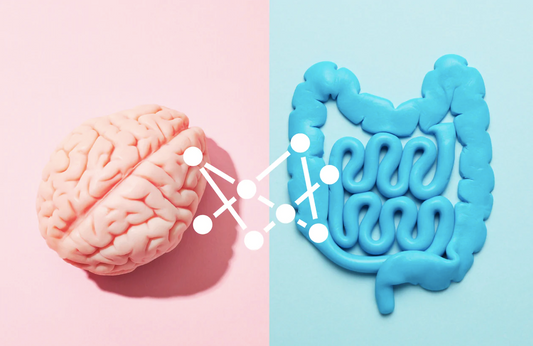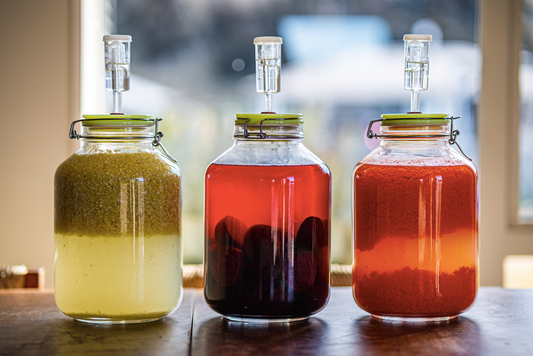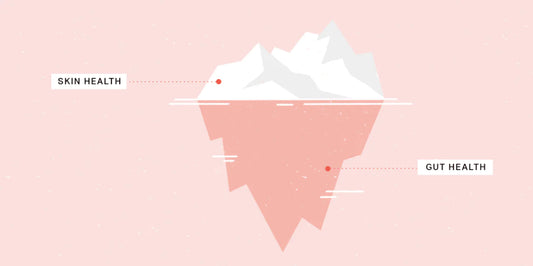The Vaginal Microbiome
You’ve probably heard a lot about the microbiome in relation to gut health but have you heard about the vaginal microbiome?
Yes, we also have a community of microbes down there! And they hold a really important role.
The vaginal microbiome is thought to mimic the gut microbiome to a degree as these two areas are close in proximity and there is urogenital-gastrointestinal crosstalk which causes a similarity in microbial communities.
This is evident in the fact that commonly people with the likes of gut symptoms/concerns will also have vaginal concerns whether that be thrush or painful and heavy periods.
The vagina is dominated by lactobacilli species which create the perfect environment for healthy vaginal tissue and protects against any pathogens from entering by creating a low pH environment.
When this environment is disrupted, pathogens can invade causing conditions such as bacterial vaginosis and thrush.
While these chronic vaginal infections are worth exploring and addressing it’s also important to note that the health of your vaginal microbiome will also affect your period symptoms, your fertility, pregnancy outcomes and even the health of your future child.
Signs that you might have a disrupted vaginal microbiome?
- Heavy periods
- changing a tampon more than every 4 hours or a moon cup more than twice per day
- Painful periods - enough to take medication
- Endometriosis
- Infertility
- Thrush
- Bacterial vaginosis
- Pain during sex
- Spotting throughout the cycle
- Gynaecological cancers such as ovarian, cervical or endometrial
- Pelvic inflammatory disease
Can you test for this?
Yes, you can complete a vaginal microbiome test to understand more clearly what is going on.
If you have dysbiosis in the vagina/cervix/endometrium the pathogens release lipopolysaccharides which drive inflammation, causing increased blood flow and pain during menstruation.
This state in the endometrium can make it very hard for implantation of a fertilised egg to occur thus affecting fertility or even success of treatments like IVF.
The following strains of bacteria have been suggested to be linked with inflammation or dysbiosis in the vagina: Prevotella, Dialister, Atopobium, Gardnerella, Megasphaera, Peptoniphilus, Sneathia, Eggerthella, Aerococcus, Finegoldia, and Mobiluncus.
In regards to endometriosis there is growing evidence which shows dysbiosis of certain strains of bacteria in the vagina/endometrium in endometriosis patients and more importantly these patients responding well to certain probiotic treatment with a significant reduction in period pain.
As well as considering the health of your vaginal microbiome for current symptoms or concerns it’s also important to consider it for the health of your newborn if you are in this stage of life.
Babies are essentially born sterile and it’s the mothers microbial communities in the vaginal canal that will influence the babies microbiome - in all areas of their body.
Their microbiome will then go on to affect their immune development, neurodevelopment, gut health, skin health and essentially every area of their health. You’ll save a lot of money ensuring your vaginal microbiome is good now rather than addressing the side effects in your child years down the track!
How can you harbour a healthy vaginal microbiome?

Like many things, we need to look to the gut! As mentioned earlier there is cross-talk between these areas and translocation of microbes due to the close proximity. We can also consider hygiene practices in this area.
Whether you have known/suspected concerns in this or want to prevent any unwanted infections I’d encourage you to think about the following to support your vaginal microbiome:
1. Eat a whole foods diet with a focus on diversity in produce and colour - the more colour you get in your diet the more variety in polyphenols there will be which feed different bacteria in your gut.
2. Minimise/eliminate processed foods and sugars which are known to feed unfriendly microbiomes and encourage their growth.
3. Use Clover Ferments to build up the level and diversity of beneficial bacteria within your gut (and therefore your vagina).
4. Use a probiotic with lactobacillus strains which are the main species within your vaginal microbiome.
5. Quit alcohol which disrupts your microbiome.
6. Avoid using moon cups which can easily carry unwanted bacteria in your vagina OR make sure you are REALLY vigilant with sterilising your moon cup before and after use.
7. Avoid using soaps in this area which will disrupt the microbiome. Any smelliness is usually a sign of an infection and needs to be addressed through the microbiome as opposed to through soaps or lotions which will often contribute to the issue.
And remember this isn’t just for women! Whoever you are making babies with will share a similar genital microbiome. So, whatever the concern is you’re trying to address or whether you’re preparing for conception make sure to get your partner onto these tools as well!
References:
https://www.ncbi.nlm.nih.gov/pmc/articles/PMC8745627/ https://pubmed.ncbi.nlm.nih.gov/11821274/ https://www.ncbi.nlm.nih.gov/pmc/articles/PMC9962481/ https://www.sciencedirect.com/science/article/pii/S0882401018314104?via%3Dihub https://bmcinfectdis.biomedcentral.com/articles/10.1186/s12879-017-2501-y
About the author:

Grace Mortimer - Head Clinical Nutritionist
Pheno Nutrition
https://www.phenonutrition.com/
-
BSc Neuroscience
-
dipGrad Human Nutrition
-
HPN2 Clinical Nutrition




